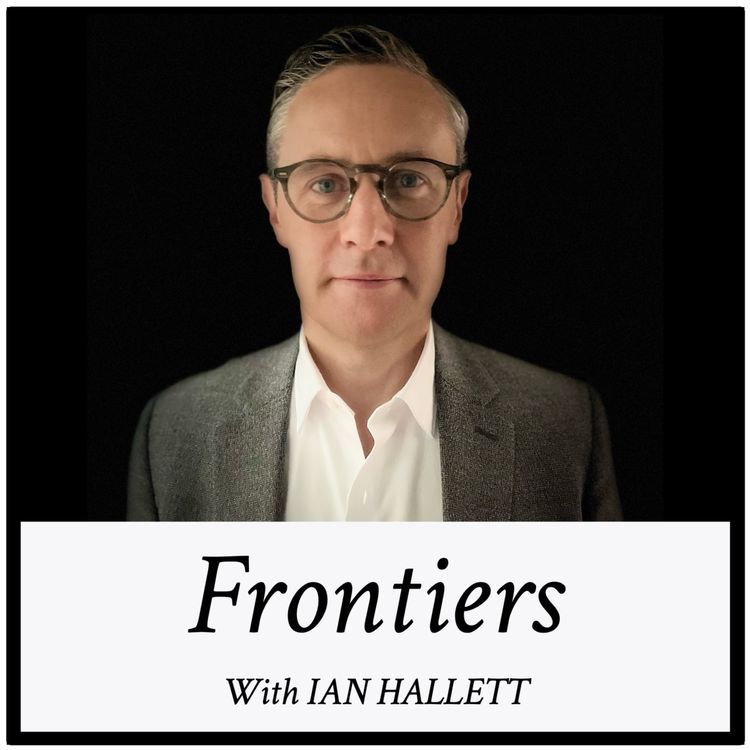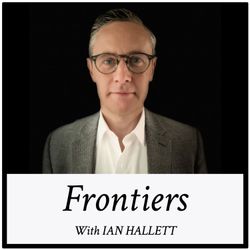Share

Frontiers
#17. Professor Ioannis Ioannou: Kodak, Blockbuster and Creating Businesses That Last
Ioannis Ioannou is one of the world’s leading experts on Sustainability and Corporate Social Responsibility (CSR) and Associate Professor of Strategy and Entrepreneurship at London Business School. Professor Ioannou regularly publishes in top-tier peer-reviewed academic journals, including Strategic Management Journal, Academy of Management Review, Management Science, and Organization Science. Professor Ioannou is also the co-Chair of the Sustainability Advisory Panel of Merck, a member of the ESG Advisory Board of the DWS Group, a member of the Advisory Board of the Sustainable Risk Assessment Framework (SRAF), the Board of the Alliance for Research on Corporate Sustainability (ARCS), serves as an Advisor to TreeApp, and a member of the World Economic Forum Expert Network. Learn more here: www.ioannou.us
Summary
Professor Ioannou discusses the need for sustainability and corporate social responsibility to be central to the strategies of organisations. He explores the fall of Kodak and Blockbuster as analogies for organizations that fail to adapt to these new demands. Professor Ioannou defines sustainability and corporate social responsibility as integrating environmental and social issues into business. He emphasises the importance of understanding the evolving nature of these challenges. Professor Ioannou also discusses the connection between corporate strategy and sustainability, the trade-offs and opportunities of sustainability, and the challenges of transitioning to a sustainable business model. He highlights the role of disruptive innovation and the clashing capabilities and competencies that organizations may face. Ioannou addresses the balance between short-term results and long-term transformation and the role of investors in the transition to sustainability. He concludes by providing advice for business leaders on how to approach sustainability.
Key Moments
04:21 Defining Sustainability and Corporate Social Responsibility
05:17 The Conceptual Level of Sustainability
06:14 The Evolving Nature of Sustainability Challenges
09:28 The Connection Between Corporate Strategy and Sustainability
10:22 The Goal of Shareholder Value and Sustainability
11:16 The Two Stories of Sustainability
12:39 The Trade-offs and Opportunities of Sustainability
14:29 Disruption and Clashing Capabilities
20:34 Navigating the Disruption of Sustainability
21:32 Disruption by Sustainability and Ethics
22:27 Technological Innovation and Sustainability
23:23 Customer Changes and Sustainability
24:18 Clashing Capabilities and Competencies
27:37 Structural Inertia and Transitioning to Renewables
28:32 The Challenge of Competing with Two Business Models
31:15 The Rate of Change in Sustainability
33:37 Balancing Short-Term Results and Long-Term Transformation
36:27 The Role of Investors in the Transition to Sustainability
47:28 Advice for Business Leaders
Music credit: David Cutter Music / @dcuttermusic
More episodes
View all episodes

50. #50. Final Episode: My Leadership Journey with Frontiers Host Ian Hallett
40:49||Ep. 50Ian Hallett hosts the Frontiers podcast, is a Group Managing Director at global flexible workspace provider IWG plc and is completing a PhD at the business school and grande école ESCP in Paris.This is the final episode of Frontiers, and I felt it appropriate to share an interview I did for the Show Up! podcast, in which I shared my leadership journey.It's been a privilege to speak with the amazing guests I've had on Frontiers. My heartfelt thanks to all of them and to you, the regular listeners.I am now focusing on my new project, Leaders of the People, which aims to democratise leadership education. Perhaps one day, I will relaunch Frontiers as part of this, but for now, it's been an amazing experience. Thanks again.
49. #49. UK's Nuclear Fusion Chair: This Technology Could Provide Limitless Clean Energy! It's A First-Of-A-Kind Programme. UK Is The World Leader. - David Gann
47:29||Ep. 49David Gann CBE is Chair of UK Industrial Fusion Solutions and Emeritus Professor of Innovation and Entrepreneurship at Saïd Business School, University of Oxford and Imperial College London. Professor Gann is a globally recognised leader in innovation, technology management and entrepreneurship.In our second conversation, David Gann and I discussed his efforts to lead the UK's Nuclear Fusion programme, a first-of-a-kind project (worldwide) that could provide limitless, clean, cheap energy. Music credit: David Cutter Music / @dcuttermusic
48. #48. [Highlight] How To Adopt AI Into Your Business (When You Don't Know Where To Start. - Prof. Stefano Puntoni
14:12||Ep. 48Stefano Puntoni is the Sebastian S. Kresge Professor of Marketing at the Wharton School. Check out episode 24 for the full conversation.Music credit: David Cutter Music / @dcuttermusic
47. #47. Data Sciences Professor: We Can Predict Your Personality Using Your Social Media Data! Your Phone is NOT Listening To You! You Can't Control Your Personal Data! - Prof. David Stillwell
58:17||Ep. 47David Stillwell is Professor of Computational Social Science at Judge Business School, University of Cambridge. Prof. Stillwell’s research uses big data to understand psychology.Music credit: David Cutter Music / @dcuttermusic
46. #46. [Highlight] What Will Your Job Be in 10 Years? - Prof. Sir Geoff Mulgan
20:22||Ep. 46Sir Geoff Mulgan CBE is Professor of Collective Intelligence, Public Policy and Social Innovation at University College London (UCL). Music credit: David Cutter Music / @dcuttermusic
45. #45. Strategic Change Professor: Your Words Determine Strategy! Change Your Narrative, Change Your Business! - Prof. Eero Vaara
54:39||Ep. 45Eero Vaara is Professor in Organisations and Impact at Saïd Business School, University of Oxford. Eero’s research focuses on strategic and institutional change. He is a world leading expert in discursive and narrative perspectives.Music credit: David Cutter Music / @dcuttermusic
44. #44. [Highlight] What Comes After TikTok? - Prof. Michael Haenlein
15:43||Ep. 44Michael Haenlein is a Professor of Marketing at ESCP Business School, and holds Visiting Positions at Kozminski University in Warsaw (Poland) and Trinity Business School in Dublin, Ireland. Music credit: David Cutter Music / @dcuttermusic
43. #43. Digital Agency CEO: Step Back, Understand The Problem, And Stay Calm! Finding Talent Is My Superpower! - Luke Smith
49:56||Ep. 43Luke Smith is the Founder and CEO of Croud, a leading independent digital agency. Croud has become a full-service global business, delivering innovative marketing solutions to top brands like Amazon Prime Video, Nespresso, and Ford.Music credit: David Cutter Music / @dcuttermusic
42. #42. [Highlight] How Investors Respond To A Crisis- Prof. Alex Wagner
20:20||Ep. 42Alex Wagner is a Professor of Finance at the University of Zurich (UZH) and a senior chair of the Swiss Finance Institute (SFI). He is the Chairman of the Executive Education of the UZH Faculty of Business, Economics, and Informatics and Co-Head of the UZH Center for Crisis Competence. He has served as chairman of a proxy advisor and as an independent counsel for PwC. His research focuses on corporate finance, sustainable finance, and behavioural economics.Check out episode 12 for the full conversation.Music credit: David Cutter Music / @dcuttermusic